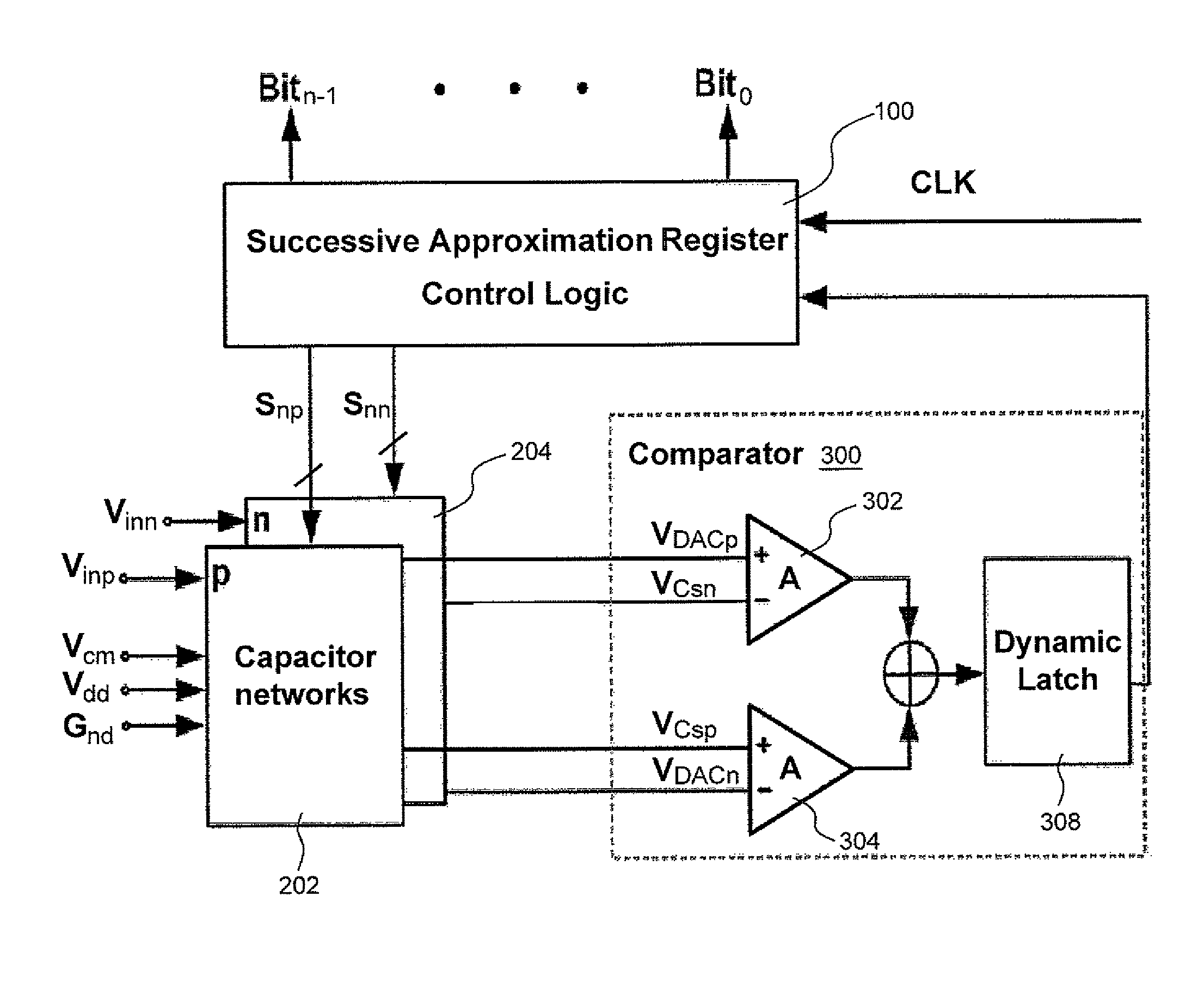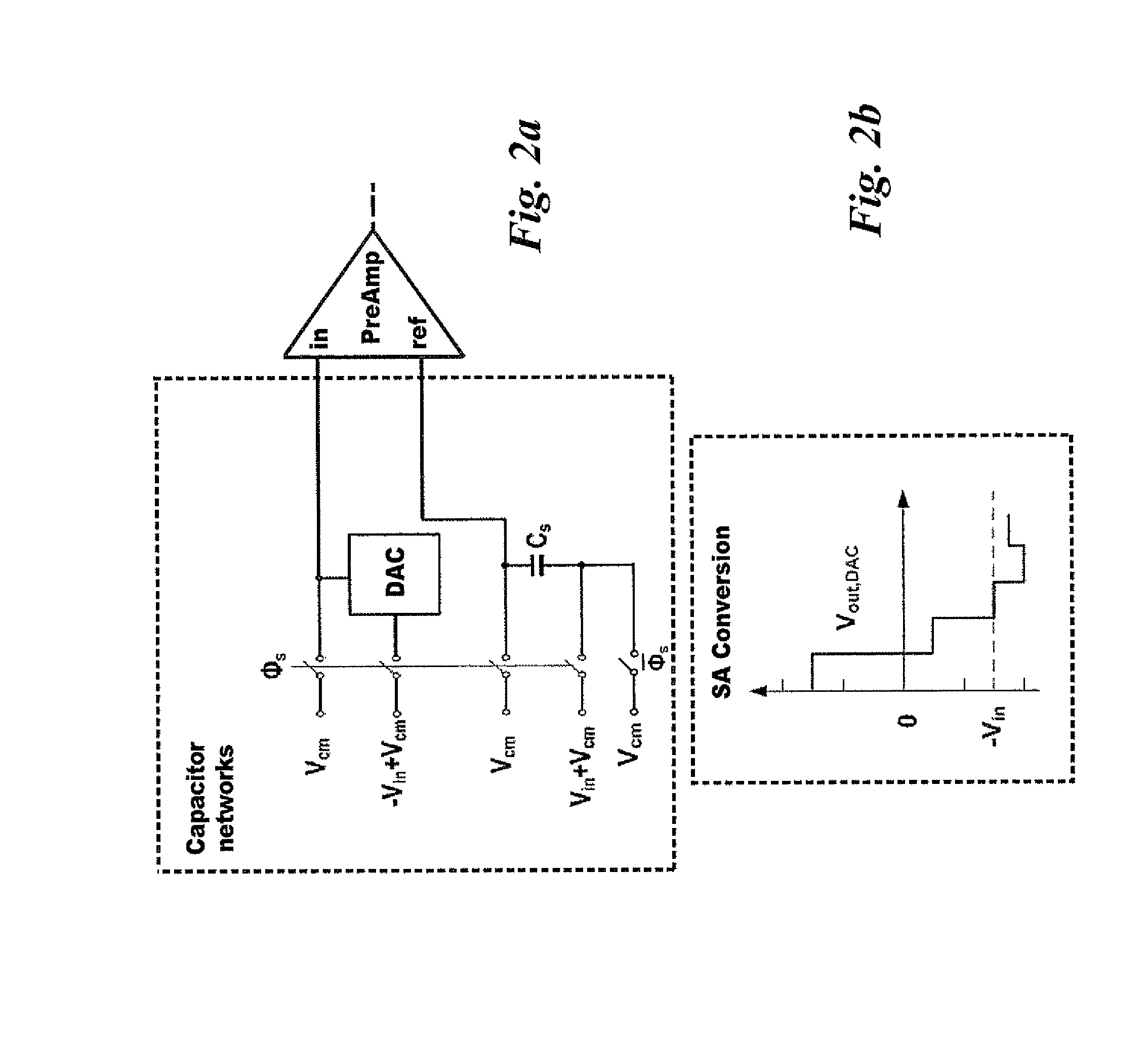N-bits successive approximation register analog-to-digital converting circuit
a technology of successive approximation register and analog-to-digital conversion, which is applied in the field of nbits successive approximation register analog-to-digital conversion (adc) circuit, can solve the problems of pipeline architecture not benefiting from technology scaling and providing very low output resistance, and achieve the effect of removing static power dissipation
- Summary
- Abstract
- Description
- Claims
- Application Information
AI Technical Summary
Benefits of technology
Problems solved by technology
Method used
Image
Examples
Embodiment Construction
[0015]A preferred embodiment of the present invention will be described hereinafter with reference to the accompanying drawings.
[0016]First, please refer to FIG. 1. FIG. 1 is a block diagram of the n-bits SAR ADC circuit according to the present invention. As shown in FIG. 1, the n-bits SAR ADC circuit according to the present invention comprises: a SAR control logic (100), a p-type capacitor network (202), an n-type capacitor network (204), and a comparator (300). The p-type capacitor network (202) includes a DACp array (unshown) and a sampling capacitor CSp (unshown). On the other hand, the n-type capacitor network (204) includes a DACn array and a sampling capacitor CSn. The comparator (300) is composed of a first pre-amplifier (302), a second pre-amplifier (304) and a dynamic latch (308). Alternatively, the comparator is composed of a four-input pre-amplifier and a dynamic latch. The SAR control logic (100) provides two series of control signals Snp and Snn to the p-type capacit...
PUM
 Login to View More
Login to View More Abstract
Description
Claims
Application Information
 Login to View More
Login to View More - R&D
- Intellectual Property
- Life Sciences
- Materials
- Tech Scout
- Unparalleled Data Quality
- Higher Quality Content
- 60% Fewer Hallucinations
Browse by: Latest US Patents, China's latest patents, Technical Efficacy Thesaurus, Application Domain, Technology Topic, Popular Technical Reports.
© 2025 PatSnap. All rights reserved.Legal|Privacy policy|Modern Slavery Act Transparency Statement|Sitemap|About US| Contact US: help@patsnap.com



